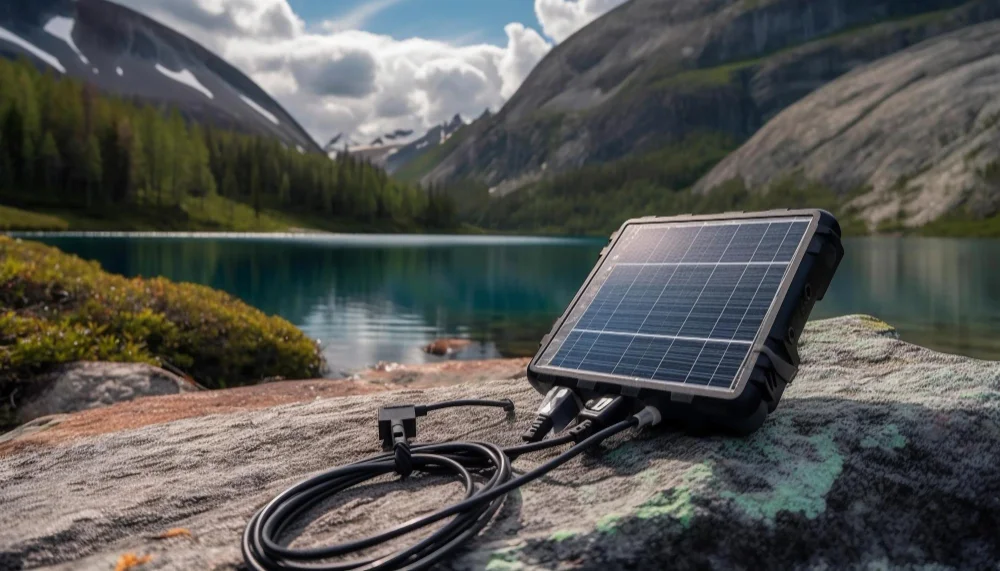
Portable power stations have surged in popularity, offering a reliable solution for charging electronics away from traditional outlets. People from campers to individuals prepared for emergencies benefit from these devices. But are they worth the investment? Various factors, such as different needs and usage scenarios, come into play. From providing emergency backup power during outages to ensuring a sustainable living option for off-grid adventures, portable power stations hold significant potential. They’re eco-friendly, versatile, and convenient, intended to meet diverse power requirements. This guide explores how worthwhile these portable power units are by examining their benefits, what to weigh before purchase, and their cost-effectiveness over time.
Benefits of Portable Power Stations
Portable power stations offer numerous advantages. They provide critical backup power during emergencies, ensure power availability for outdoor adventures, and represent a cleaner energy alternative. They are flexible solutions that cater to specific requirements, making them invaluable tools in today’s increasingly mobile and eco-conscious world.
Emergency Backup Power
In times of unexpected power outages, a portable power station stands out as a reliable backup. During storms or grid failures, when the electricity supply might be disrupted for hours or even days, these devices play a vital role. They swiftly provide electricity to essential gadgets, ensuring that lights, medical devices, and communication tools remain functional. The ease of transporting them from room to room adds to their appeal, particularly for households that might not have the infrastructure for a permanent generator. In emergencies, having a steady supply of power alleviates stress and uncertainty. Notably, with the ability to recharge via solar panels, portable power stations can continue offering power beyond their initial charge.
Off-Grid and Outdoor Use
For outdoor enthusiasts, portable power stations provide the convenience of modern amenities in remote locations. Whether going on a camping trip, hiking expedition, or a road trip, these devices extend the sense of comfort by powering lights, small refrigerators, or electronic gadgets without the noise and fumes of a traditional generator. They’re built to withstand outdoor conditions, offering durability and reliability. Exploration doesn’t have to mean leaving behind creature comforts, as these stations provide services in the wild. Moreover, the ability to harness solar energy further opens up sustainable possibilities, making them indispensable for those who wish to explore off the beaten path.
Eco-Friendly Energy Solution
Using portable power stations contributes to reducing carbon footprints and reliance on fossil fuels. They usually incorporate lithium-ion batteries, a cleaner alternative to fuel-based power sources, capable of storing energy efficiently with minimal environmental impact. When paired with solar panels, these devices become a part of a renewable energy cycle, harvesting power from the sun for later use. This characteristic makes them appealing to environmentally-conscious individuals and those seeking sustainable energy solutions. Choosing portable power stations over generators reduces emissions, offers quieter operation, and supports global efforts toward energy sustainability, making them a preferred choice for many.
Factors to Consider Before Purchasing
Selecting the most suitable portable power station depends on a few crucial considerations. Prospective buyers should assess their power requirements, evaluate the device’s weight for portability, and review charging methods, including solar compatibility, to ensure they choose the right solution.
Power Capacity and Output Needs
Before purchasing, understanding power capacity and output is essential. Power stations are rated by watt-hours (Wh), which indicates how many watts the station can deliver in an hour. Identify what devices you plan to charge and their power consumption. For example, running a laptop requires fewer watts than a refrigerator. Ensuring the station meets or exceeds your power requirements is critical, preventing overloading and ensuring efficient operation. Consider how long you’d need power backups and match this with the station’s output capacity, ensuring there’s room for unexpected power needs during long outages or when lighting up an entire campsite.
Portability and Weight
A key benefit of portable power stations is their mobility, but this mobility diminishes if the device is unwieldy. Evaluate the device’s size and weight compared to its power capacity. For outdoor activities, lighter options are generally preferable for easy transport. Some models come with handles or wheels for convenience, but even these features should not compromise the product’s suitability for remote adventures. Consider whether you need a compact unit for hiking or a larger one for significant ventures. Balancing between power capacity and portability will ensure you’ll make optimal use of the power station.
Charging Options and Solar Compatibility
The efficiency of replenishing power in a portable power station is crucial for its utility. Many stations offer multiple charging methods, including AC outlets, car adapters, and, most sustainably, solar charging. Assess the availability and convenience of these options in your typical environment. Solar compatibility provides a significant advantage, allowing stations to be charged outdoors when away from conventional power sources. Identify if solar panels are included or if they need to be purchased separately. Charging speed should also be considered, as faster options enhance usability, especially during lengthy power outages.
Cost Analysis and Long-Term Value
While portable power stations may seem expensive initially, evaluating their long-term value reveals potential savings and advantages. Consider the cost relative to their lifespans. Portable power stations, when maintained properly, have a longer lifespan than traditional, gas-powered generators. Unlike generators, they incur minimal running costs as there’s no fuel to purchase, and maintenance is simpler. The lack of emissions means they are also better for the environment, often resulting in indirect savings. Pairing with solar panels further enhances their cost-effectiveness. Long term, sufficient energy flexibility ensures you’re less reliant on fluctuating energy prices or unexpected outages. When weighing upfront costs against the endurance and convenience they provide over time, portable power stations typically prove to be cost-effective and resourceful investments.
Conclusion
Portable power stations indeed offer tangible benefits, from emergency power supply to enabling outdoor excursions while staying eco-friendly. They serve a spectrum of requirements, but choosing the right station means assessing your specific needs, power capacity, weight for portability, and charging flexibility. Initial cost considerations might seem high, but their long-term value shines through in sustainability, reliability, and cost savings compared to traditional generators. With thoughtful selection and use, these stations emerge as worthwhile investments, providing peace of mind and power independence, crucial in today’s world where mobility and sustainability are prized.

How Sales Teams Increased Productivity with Parallel Dialers

Curtain Dry Cleaning and Leather Sofa Cleaning – Reliable Care by Duo Nini

Brian Ferdinand of EverForward Trading Joins Forbes Finance Council, Expanding His Voice on Markets and Risk

How Technology Is Changing Addiction Recovery in the Digital Age.

Our First Winter Trip to Aspen — And the Decision That Made It Stress-Free

How Technology Is Changing Addiction Recovery in the Digital Age.

Puzutask Com: Complete Guide, Reviews, and Login Information

Solve SMD Diodes Sourcing with Utsource's Bulk Options









